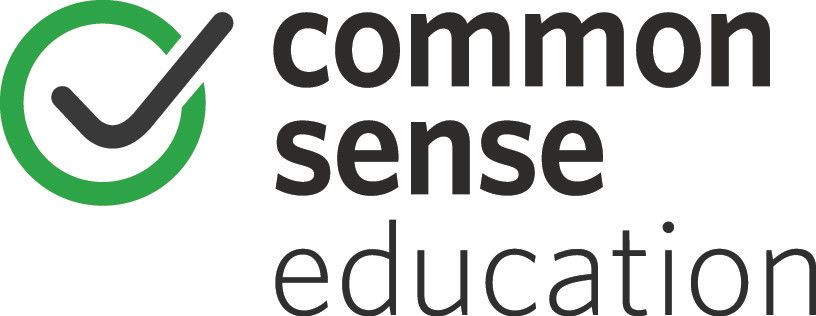What have you ever wanted to learn?
There seems to be a very distinct line drawn in the sand: either a topic is academic, or it isn't. Either it is worthy of serious scholarship, or it isn't. Knowing a lot about the Civil War is academic; knowing a lot about professional football is not. Being able to recite Shakespeare is academic; being able to recite 2Pac is not. Schools, in maintaining the traditional content areas (and distribution requirements) of English/Language Arts, Social Studies/History, Math, and Science, perpetuate this division. Some things, schools say, are worth knowing, and some things just aren't worth knowing.
Any one of us could make the argument that there are some things that are objectively not worth knowing. Generally speaking, though, each of us would make a case for something different that is not worth knowing. Some sorts of topics may be devoid of all relevance and meaning to my life (the life cycle and history of termites in Madagascar, for example), but that does not mean that everyone finds these topics so dry (Malagasi home builders and foragers). And conversely, some things that I know a lot about (vintage Fender guitar amplifiers) may be completely useless knowledge to the next person (my deaf 90-year-old neighbor). What school does, in effect, is tell us what is worth knowing and what isn't.
This world needs experts in all subjects. We who have never taken apart our car engine or bathroom sink understand this when they break down. But even car engines and indoor plumbing would be hard-pressed to find a home within traditional academics. These are the topics for shop class, an anachronistic fringe elective that has traditionally been there for those who have not done so well with their "academics."
One interesting thing to note is that this dichotomy of "academic" and "non-academic" quickly falls apart when we move past high school. In college, one quickly realizes, you can study anything. One friend of mine wrote about people that trade Grateful Dead tapes for his Master's Thesis, and another friend studied the reproductive habits of teenagers (she is now a Ph.D., who consults with the WHO about HIV prevention). Studying the reproductive habits of teenagers is a bit more...informal when you are in high school, but can become one's life's work. We even see respected scholars like Cornel West and Tricia Rose researching hip hop, which may make us think twice about just how academic 2Pac really is.
The truth is that anything is worth knowing if it brings meaning and understanding into our lives. At Tutorpedia, we ask: what have you ever wanted to learn? We expect that the answers will vary wildly, and we're preparing accordingly. Our tutors are experts in helping students better understand math, English, history, and science, but they are also in the process of putting together project-based learning experiences that will extend what is possible to learn beyond the borders of traditional academics. Soon, Tutorpedia workshops will allow students to polish their fiction writing skills, grow edible plants in an organic garden, find focus through meditation, perform live in a rock band, gain extra confidence and practice for the SAT or SSAT, explore the latest innovations in biotechnology, compose a photo essay, choreograph their own hip-hop dance routines, and more.
It's important to pass on knowledge, and much of the knowledge that we pass on in school is important. But let's not limit ourselves to just the "academics." Topics that nobody would suggest be studied in school can be just as legitimite and meaningful.
Thursday, October 1, 2009
Subscribe to:
Post Comments (Atom)







3 comments:
This is incredibly exciting stuff that the author is talking about, assistance in learning about anything and everything. One thing that none of us should forget, whether we are students, tutors, teachers or others, is that it is probably the process of learning that is more important over the knowledge that is actually learned. My extensive knowledge of United States history only comes up occasionally, and I use it most often to impress and inform friends at a social gatherings. If I wasn't a math tutor I likely would have very little idea how to do complex long division by hand at this point. However, the same research skills that I developed in my studies of American history I put to use in educating myself about the things I enjoy doing. The same analytical skills that I developed while learning long division many years ago now translate into building spreadsheets for my day job.
The point of all of this that learning how to learn is just as if not more important than the actual knowledge acquired. We at Tutorpedia strive to make our students better learners, not just make them proficient in whatever subject they come to us for help in. The ability to learn and to educate yourself while knowing when and how to ask for help is maybe the most valuable ability that you could posses.
You never know what scrap of information or encounter with a new idea or procedure will germinate into a lifelong passion.Sometimes serendipity bestows on us opportunities, but I (a retired teacher) think your idea about offering various life skill and life affirming subjects for even brief encounters is fabulous. You go!
I really like this thread of conversation. As an elementary school teacher, it is my job to teach lifelong skills and behaviors to my students. Yet, so many of the "academic" skills embedded within the curriculum and standards are simply that... academic, destined to be stored within the depths of students' brains without retrieval for the rest of their lives (unless they are contestants on Jeopardy).
Students do need more outlets for their creativity and areas of interest. They also need growth facilitators. It sounds like Tutorpedia recognizes this fact.
Thanks David!
Post a Comment